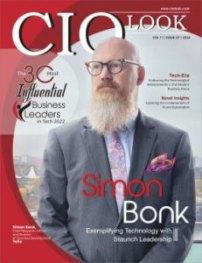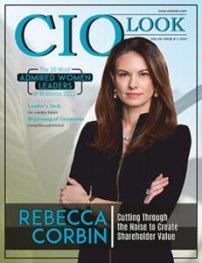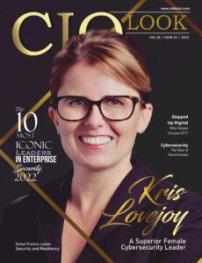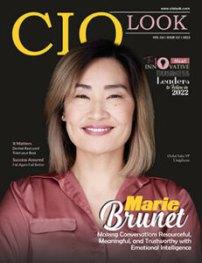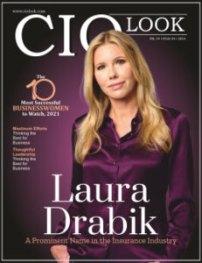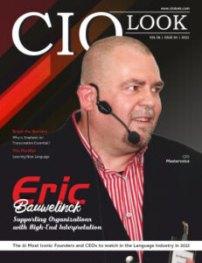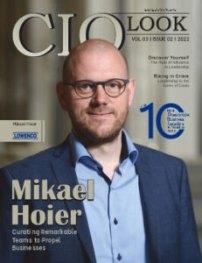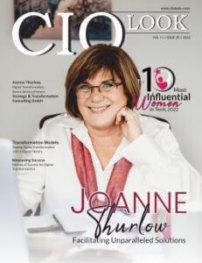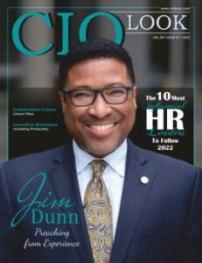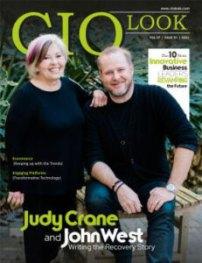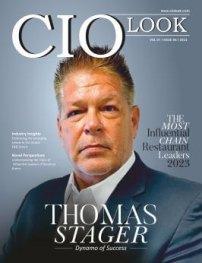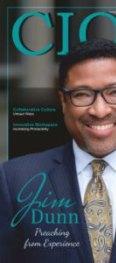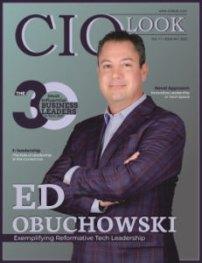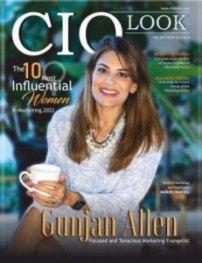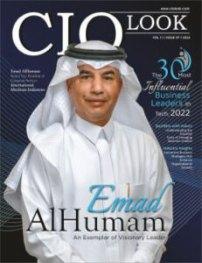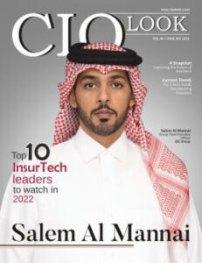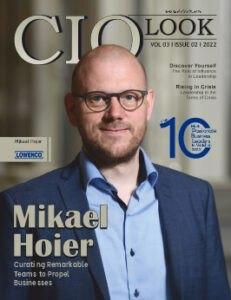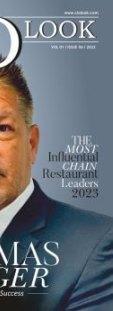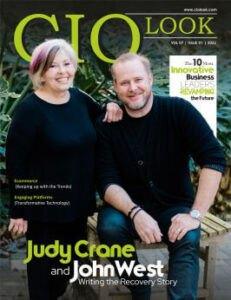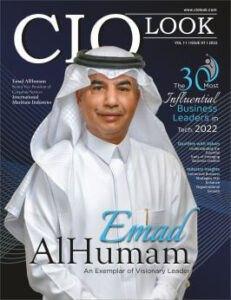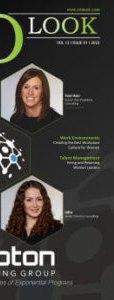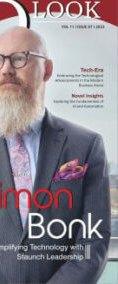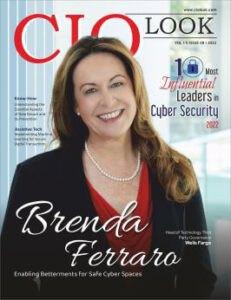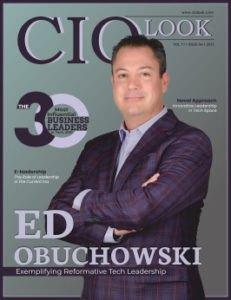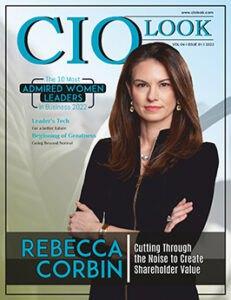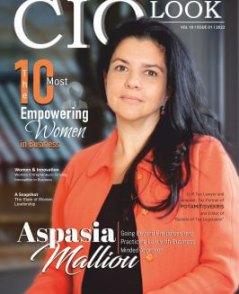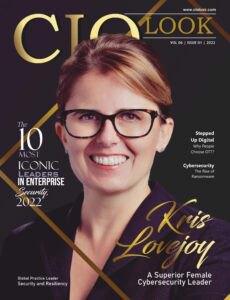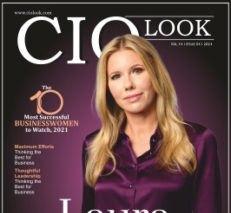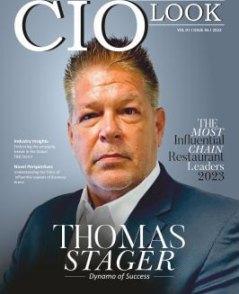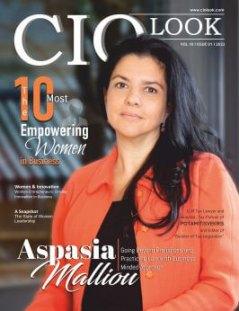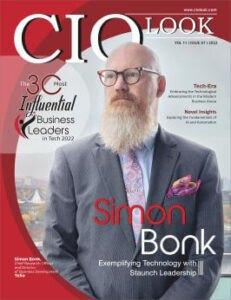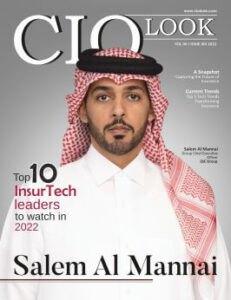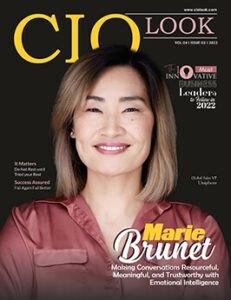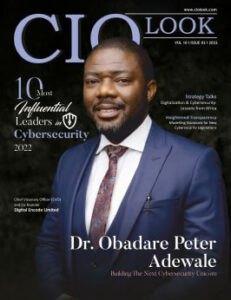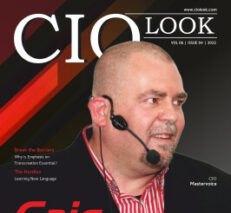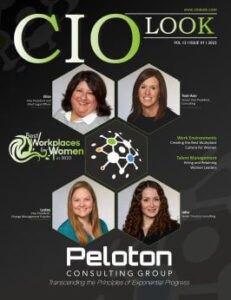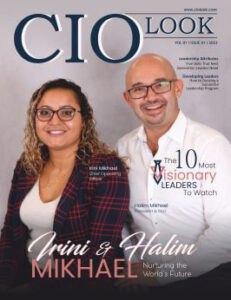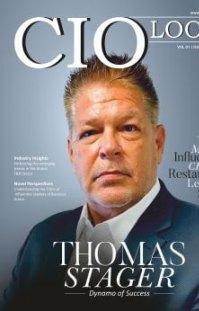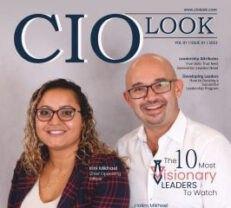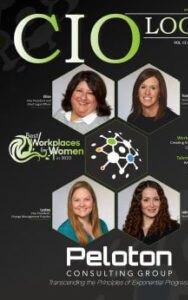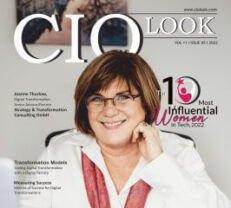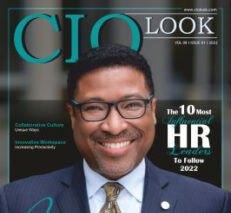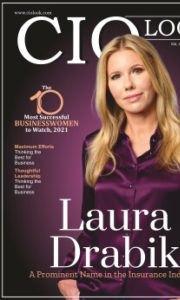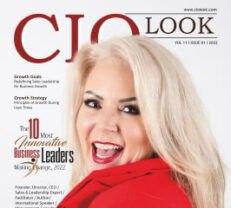





There is no LIMIT to what we, as WOMEN, can ACCOMPLISH.

-MichelleObama










There is no LIMIT to what we, as WOMEN, can ACCOMPLISH.

-MichelleObama




Inaworldwherehealthcareisrapidlyevolving,itisthe
visionaries,thechangemakers,andthetireless advocateswhoareredefiningitsfuture.CIOLookin thisspecialeditionof Top Influential Women Leaders in Healthcare, 2025 isatributetotheremarkablewomenwho arenotonlyleadinggroundbreakingadvancementsbutare alsoinspiringanewgenerationofhealthcareprofessionals acrosstheglobe.
WeareproudtofeatureNishthaSareen,astandoutleader whosededication,innovation,andimpactembodythespirit ofthisedition.Nishtha’sjourneyisapowerfulstoryof purposeandperseverance—fromnavigatingthe complexitiesofhealthcaresystemstochampioningpatientcentricsolutionsanddrivingtechnologicalintegrationwith empathyandintelligence.Herworkisnotonlyreshaping policyandpracticebutalsosettingnewbenchmarksfor leadershipinanindustrythattoucheseveryhumanlife.
Thisissuecelebratesmorethanaccomplishments;ithonors thecouragetochallengenorms,thestrengthtouplift communities,andthevisiontocreatelastingchange. Throughinsightfulinterviews,deep-divefeatures,and personalreflections,wespotlightleaderslikeNishtha Sareenwhoaremakingextraordinarystridesinimproving healthcareoutcomesandaccess.
Toeveryreader,whetheryou'reaprofessionalinthefield,a student,orsomeonesimplyinspiredbythepowerof leadership—wehopethiseditionsparksideas,dialogue, andarenewedsenseofpurpose.
Happy Reading!

Managing Editor

www.facebook.com/CIOLook
www.x.com/CIOLookmagazine



A leader takes people where they want to go.
A great leader takes people where they don't necessarily want to go, but ought to be.

- Rosalynn Carter

08.
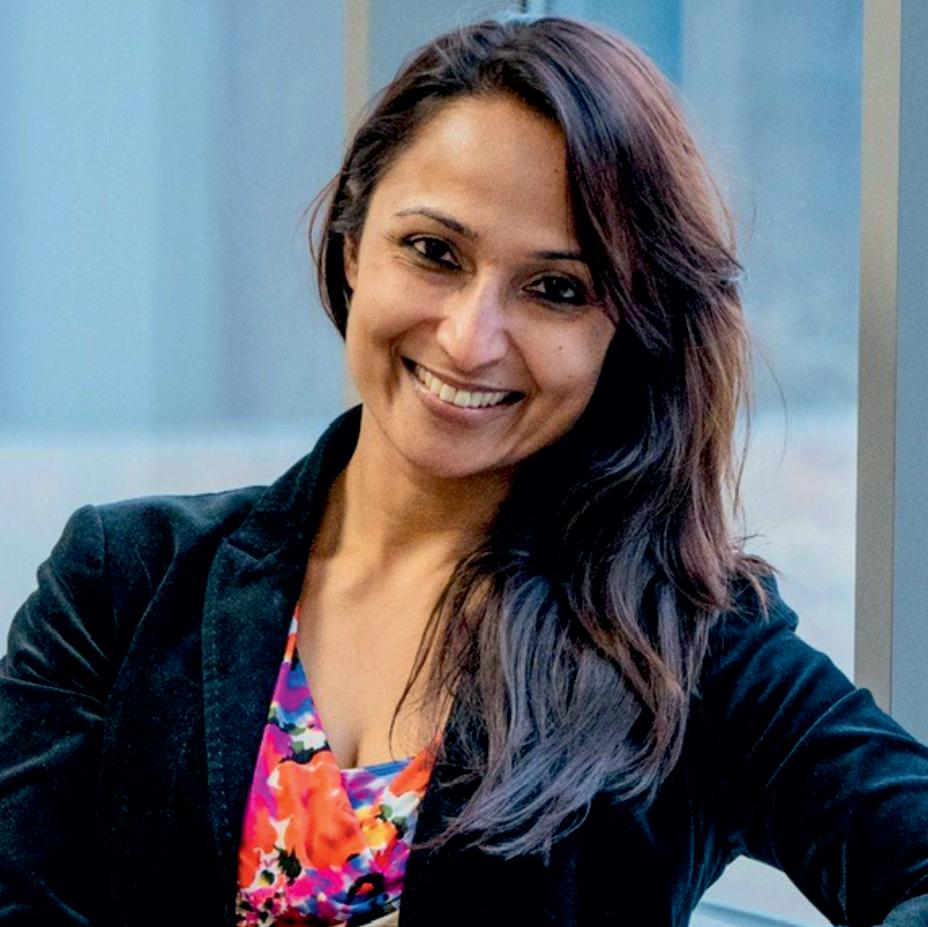
Dr. Nishtha Sareen
The Ethical Implications of AI in Healthcare Decision-Making
18. 22.
The Role of Preventive Medicine in Transforming the Healthcare Industry
Dr. Nishtha Sareen Medical Director of Women’s Heart Program
Ascension Tennessee and Ascension Michigan
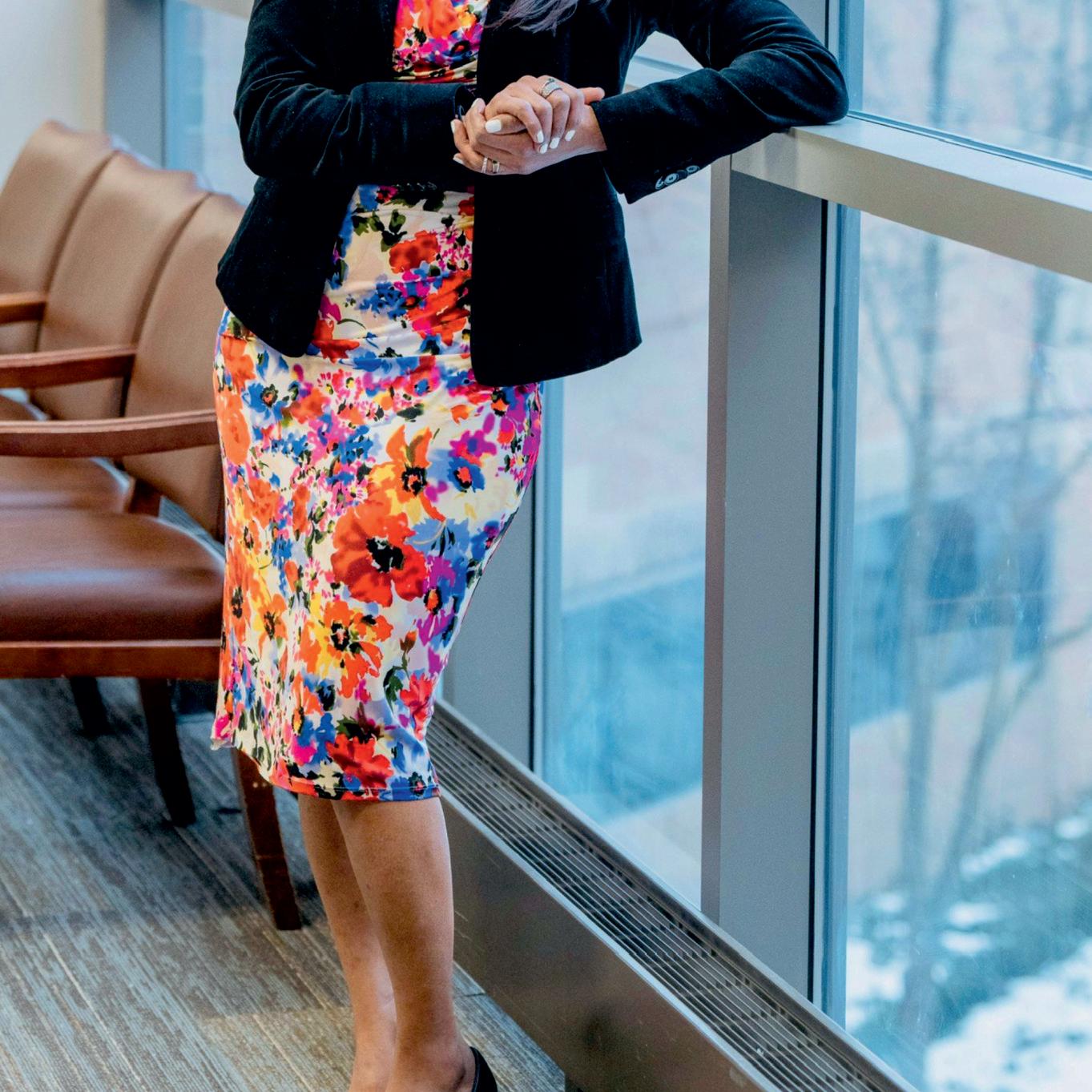
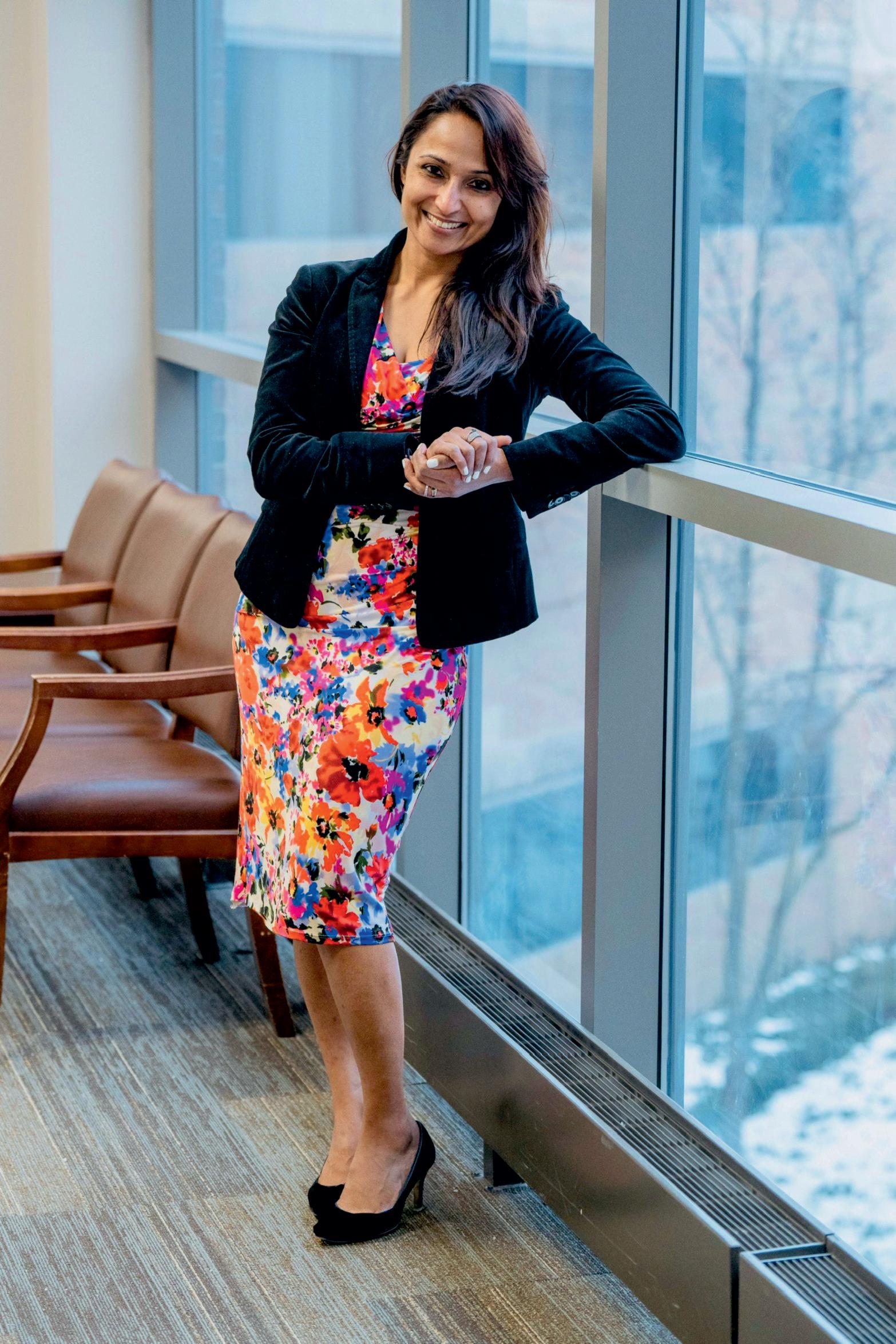
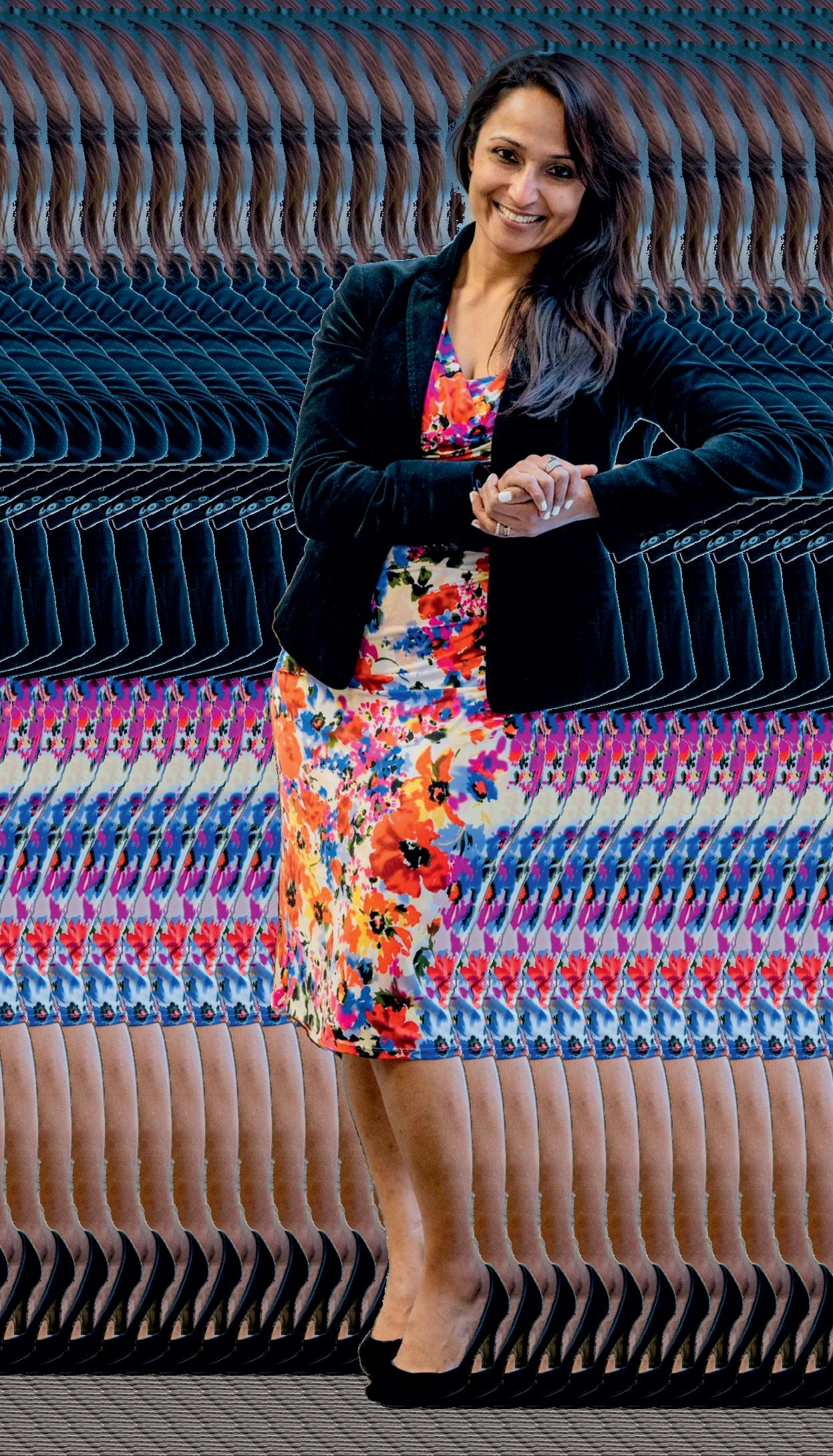


Service before self is what I believe my approach to healthcare is grounded in listening first—to patients, to communities, and to institutional needs. For me effective leadership means setting aside personal narratives to prioritize those of the people I serve.
Dr.NishthaSareen'sjourneyintocardiologywas
rootedinanearlyandprofoundexperience—at justeightyearsold,sheknewherheartwas devotedtohealingothers.Thedaughteroftwohighly compassionateprofessionals,Dr.DevendraSareen,a dedicatedpediatrician,andhermother,Mrs.Madhu Sareen,acommittededucatorandsocialworker—Dr Sareenwasexposedtounderservedcommunitiesandthe silentstrugglestheyenduredearlyon.Particularlytroubling wasthelackofadvocacyforwomen’shearthealth,anarea longovershadowedbygeneralassumptionsandmalecentricmedicalnarratives.Fromvolunteeringatruralhealth campsasachildtonoticingthedisproportionatelyhighrate ofundiagnosedlifethreateningheartconditionsamong women,hercommitmentonlydeepened.
Despiteheartdiseasebeingthenumberonekillerof women—surpassingallcancerscombined—conversations incardiologyremainedstrikinglymale-oriented.At conferences,theexcitementrevolvedaroundtechnologies thatimprovedsurvivalbyamerefewpercentagepoints, whilewomen'sspecificconditionswerelargelyignored.For instance,"heartattackwithopenarteries"andPostural OrthostaticTachycardiaSyndrome(POTS)werenever discussed,andstilllackadvocacy.Itwasthesegaps, coupledwithstaggeringstatistics—like75%ofwomen withPOTSbeingmisdiagnosedwithmentalhealth issues—thatfueledDr.Sareen’sresolve.Shepledgedher careertoshiftingtheparadigm,ensuringwomen’s cardiovascularhealthwasnolongeranafterthoughtbuta corefocus.
Dr.Sareen'sprofessionalriseisatestamenttothepowerof academicperseverance,mentorshipandaclearlydefined missionfueledbyunrelentingpassion.Herimpressive credentialsincludeboardcertificationsinInternal Medicine,Cardiology,InterventionalCardiology,Nuclear Medicine,Echocardiography,EndovascularInterventions, andCoronaryCTA.Todeepenherunderstandingof systemicissuesinhealthcare,shepursuedaMaster’sin PublicHealthfollowedbyaspecializationinHealthCare EconomicsfromHarvardMedicalSchool.Inadditionto numerouspublications,shehasservedastheChairfor WomeninInnovationfortheAmericanCollegeof Cardiology(ACC)Michigan(MI)Chapter,District representative,ACCMIBoardmemberandserveson committeesforSocietyforCardiovascularAngiography andInterventions(SCAI).DrSareenalsopartnersclosely withAmericanHeartAssociation(AHA).
While procedures like stenting offer immediate relief, they do not address root causes. The real battle lies in preventing heart disease from occurring in the first place.
GuidedbyaconstellationofmentorsincludingDr.Shukri David,DrSaminSharma,DrJohnCotant,DrKarthikeyan AnanthsubramaniumandDr AlanMultzamongothers,and supportedunfailinglybyherhusbandDrAbhishekOjha, Dr.SareensteadilyascendedtohercurrentroleasDirector oftheWomen’sHeartProgramatAscension,firstin MichiganandthentransferringthemodeltoTennessee.She quicklyexpandedoperationsbyestablishing8locationsin Michiganandthreelocationsinjustthreemonthsin Tennessee.Sheidentified13healthcarechampionswho workedcollaborativelytodelivercomprehensivewomencentriccardiovascularcare.Shelaunchedfirstifit’skind bookonhearthealthinwomen“BIASheistheforce”and continuestoengagephysiciansinfreemonthlywebinars dedicatedtoproviding“credibleinformation”toour communities.Shehasorganizedannualeducational symposiumstoeducatephysiciansonhearthealthin womenfor4consecutiveyears.Numerouscommunity screeningeventsandinitiativesincluding“Screening TeachersinTennessee”.Constantlyfindingwaystoget evidencebasedcaretothedoorstepofeverywoman. “Homogenous healthcare should not be a luxury, it is a necessity” saysDr.Sareen.Shecreditstheunwavering supportofforward-thinkingleadersDrShukriDavid,Carol Schmidt,DrDouglasApple,ThomasKlein,DrEdwardFry, DrRichardFogel,FahadTahir,Dr.BrianWilcox,andDr EvelioRodriguezforsupportinghermissionandpassionat variousstagesalongtheway






OneofthefoundationalchallengesDr.Sareenconfrontsis thepervasivemisconceptionthat“womenarejustmenwith extrahormones.”Thisflawedassumptionunderminesthe starkdifferencesinhowcardiovascularconditionspresent, progress,andrespondtotreatmentinwomen.“The reality is that women are fundamentally different—not just physically, but also emotionally, biochemically, and socially. For instance, a woman with diabetes has significantly higher complications than a man with the same diagnosis. Likewise, women may react differently to cardiac procedures and medications, yet existing treatments are still predominantly tested on men.” shesays.
Thisknowledgegaphasprofoundconsequences.From delayeddiagnosestoinappropriatetreatments,countless womensuffersimplybecausetheresearchanddatadonot reflecttheirrealities.Dr.Sareenstressestheurgentneedto testtherapiesonfemalepopulations,tailordiagnostics specificallyforwomen,andchallengelong-standinggender biasesinmedicine.
AttheheartofDr.Sareen’sleadershipliesasteadfastvalue: “Service before self is what I believe my approach to healthcare is grounded in listening first—to patients, to communities, and to institutional needs. For me effective leadership means setting aside personal narratives to prioritize those of the people I serve.” Byunderstanding whatcommunitieslackandmethodicallyworkingtofill thosegaps,sheshapespoliciesandpatientcare.Itcomes fromaplaceofempathy
Herleadershipisalsomarkedbytheinfluenceofher parents,whoexemplifiedbalance,teamwork,anda relentlesscommitmenttopurpose.Thishastranslatedinto herowncareer,wheresheseamlesslyintegratescompassion withstrategy,alwaysguidedbyamissionlargerthan herself.


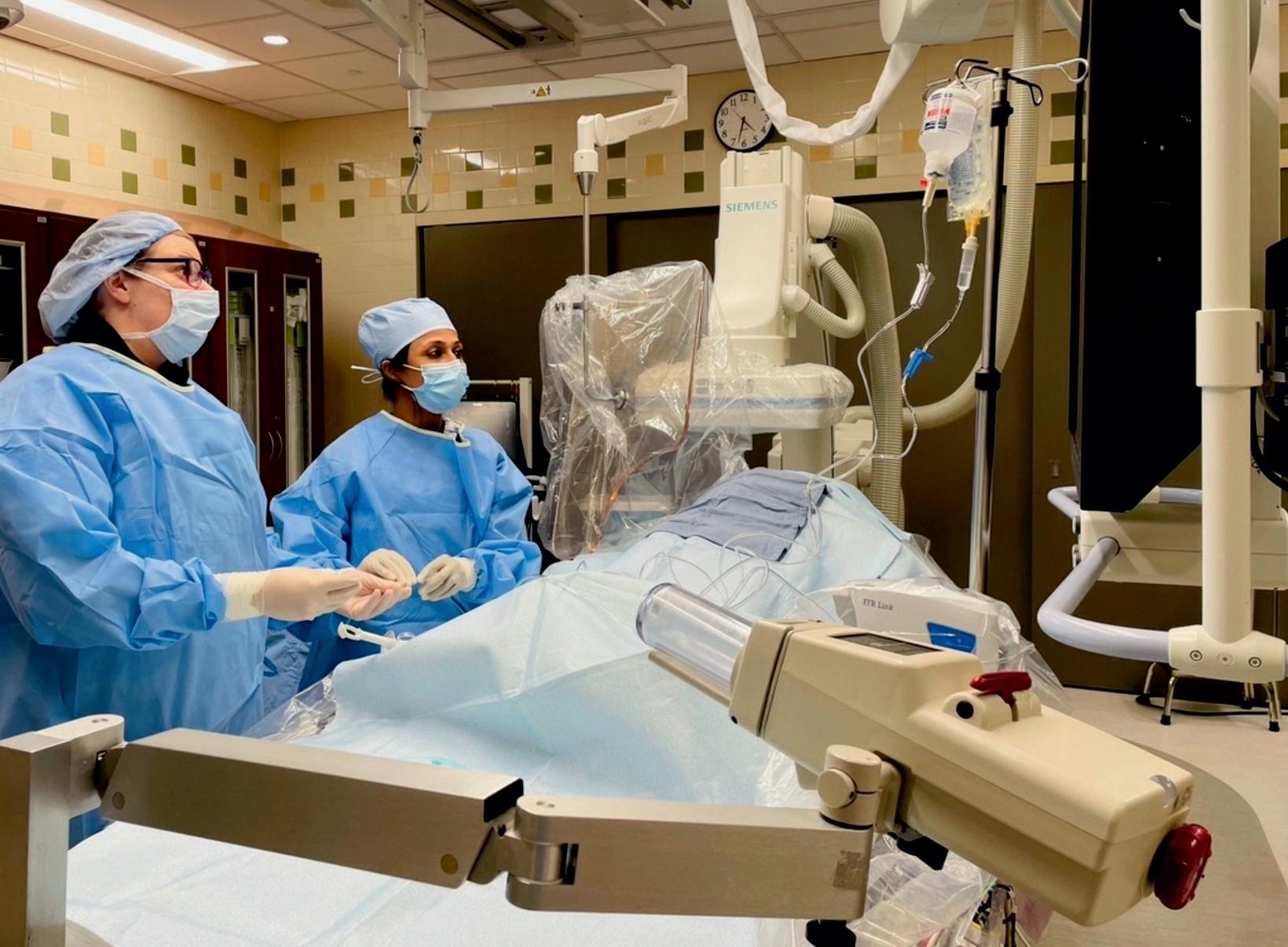


The reality is that women are fundamentally different—not just physically, but also emotionally, biochemically, and socially. For instance, a woman with diabetes has significantly higher complications than a man with the same diagnosis. Likewise, women may react differently to cardiac procedures and medications, yet existing treatments are still predominantly tested on men.
Despiteadvancementsinmedicalinterventions,Dr.Sareen believesthemostpressingchallengeincardiologytodayis prevention. “While procedures like stenting offer immediate relief, they do not address root causes. The real battle lies in preventing heart disease from occurring in the first place.” shesays.
Sheadvocatesfortacklingsystemicissuessuchas childhoodobesity,fooddeserts,andunhealthylifestyle patternsthatsetthestageforchronicconditions.These effortsrequirecollaborationacrosssectors—between physicians,policymakers,educators,andthecommunities theyserve.Unfortunately,sheobservesthatthehealthcare industryoftenstrugglestounitearoundpreventiondueto systemicsilosandcompetinginterests.Still,sheremains committedtobridgingthesegaps.
Toenhancecardiovascularcareforwomen,Dr.Sareen harnessestechnologyandinnovationnotjustastoolsof convenience,butasinstrumentsofequity.Women,she notes,respondexceedinglywelltolifestylemodifications andnon-invasiveinterventions—yetaccessibilityremainsa barrier Throughtelemedicine,shehasextendedspecialist caretounderservedareas,ensuringwomenarenotleft behindduetogeographicalorfinancialconstraints.
Butinnovation,asshedefinesit,goesbeyondgadgetsand apps.Itliesinprogrammaticdevelopmentthatreflectsthe cultural,demographic,andsocialrealitiesofthe community.ForDr.Sareen,trueinnovationis dynamic—constantlyevolving,consistentlychallenging itselftobebetter,androotedininclusivity
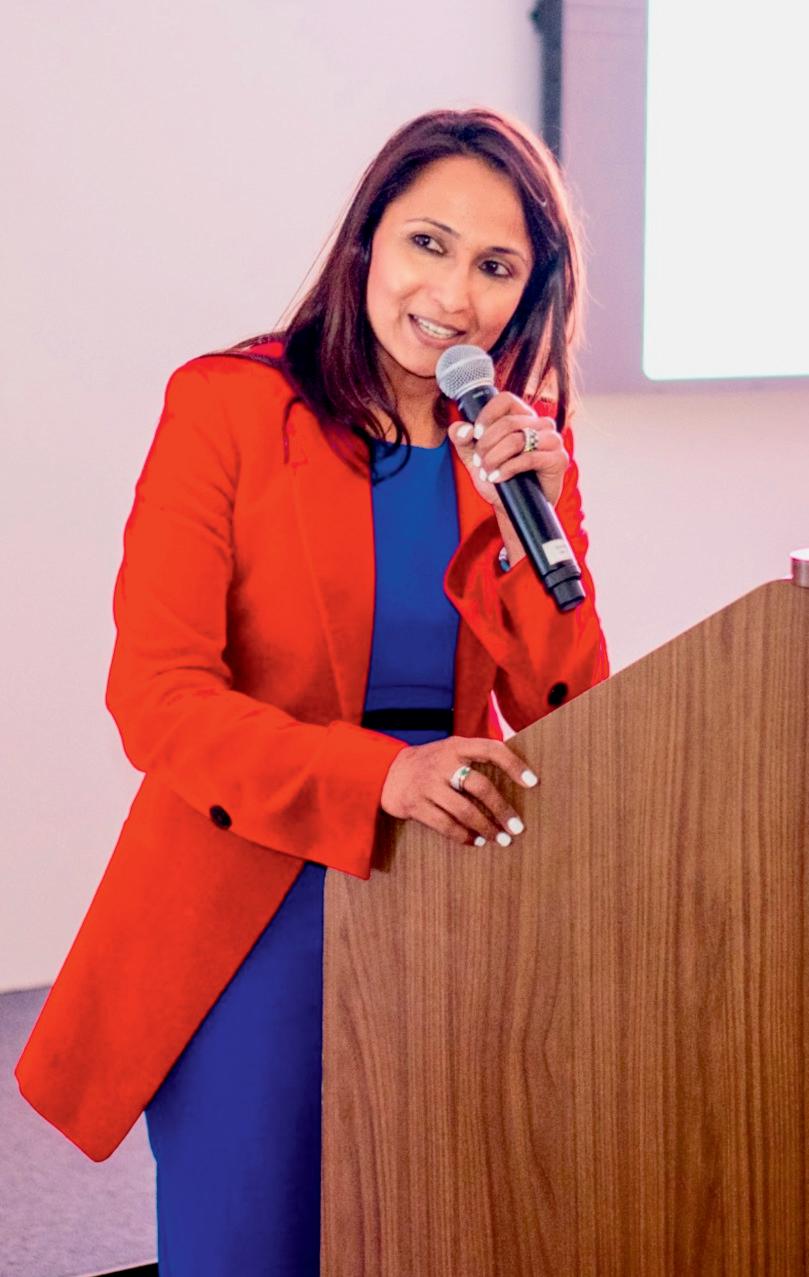

Toreducethegendergapincardiovasculartreatmentand research,Dr.Sareencallsonthemedicalindustryto championfemaleinclusionacrosstheboard.Thisincludes increasedfemaleparticipationinclinicaltrials,supportfor femaleresearchers,andtransparentreportingofgenderspecificoutcomes.Additionally,sheurgesgreaterfunding forawarenesscampaigns,professionaltraining,and communityprogramsthathighlightwomen-specificrisk factors.
Inthisendeavor,institutionslikeAscensionhavebecome criticalallies.Theirlongstandingcommitmenttoserving theunderservedhasmadethemuniquelypositionedto implementgender-sensitivehealthcaremodelslikethe Women’sHeartProgram.FromMichigantoTennessee, Ascensionhasdemonstratedthatwhenaninstitution prioritizesquality,equity,andinnovation,transformative changeispossible.
TheWomen’sHeartCenterspioneeredbyDr.Sareen operateonamodelofevidence-basedpreventivecare,with everywomanreceivinghigh-quality,patient-centric attention.
Thesecentersarenotjustclinics;theyarecommunity pillarscommittedtoeducation,earlyintervention,and holisticwellness.
“What sets Ascension apart is its willingness to innovate and evolve continuously. By aligning with my vision, the institution has shown how healthcare systems can adapt to meet the unique needs of women while optimizing resource use. The model's success lies in its simplicity and reproducibility—traits that make it scalable for broader national or even global implementation.” saysDr.Sareen.
Balancingademandingcareerwithpersonallifeisnoeasy task,butDr.Sareenattributeshersuccesstoacultureof sharedresponsibilityathome. “Inspired by my parents' equal partnership, I and my husband Abhishek have built a home centered on intentional presence. We prioritize quality over quantity, ensuring that our time with our daughter Neysa is meaningful, even amidst busy schedules.”
Bymaintainingboundaries—keeping“workatwork”—and functioningasateam,theycreateasustainable,nurturing environment.Dr.Sareenemphasizesthattheharmony betweenprofessionalambitionandpersonalfulfillmentlies inmutualrespect,communication,andsharedvalues.





Inspired by my parents' equal partnership, I and my husband Abhishek have built a home centered on intentional presence. We prioritize quality over quantity, ensuring that their time with their daughter Neysa is meaningful, even amidst busy schedules
Dr.Sareen’svisiontranscendsgeography.TheWomen’s HeartProgramshedevelopedisdesignedtobecosteffective,impactful,andeasilyimplementedanywherein theworld.Herdreamissimpleyetprofound:afuturewhere everywoman,regardlessofsocioeconomicstatusor location,hasaccesstohigh-quality,evidence-based cardiovascularcare.
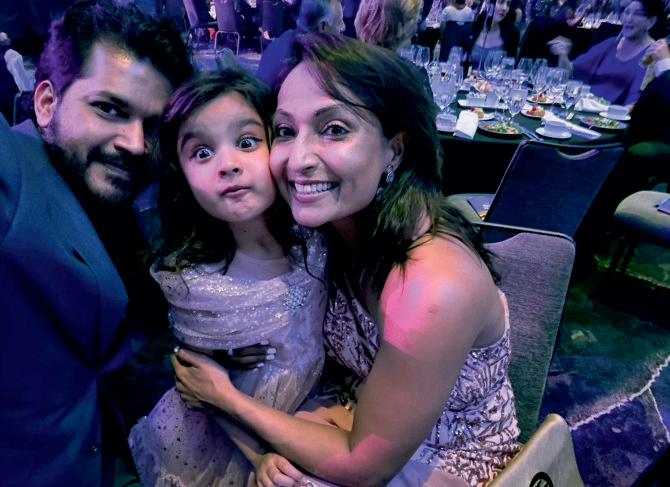

Shebelievesthatprotectingthehealthofmotherssecures thefutureoffamilies,communities,andgenerationsto come.Bycontinuingtorefine,replicate,andexpandher model,Dr.Sareenisnotjustchangingcardiology—sheis shapingthefutureofhealthcareitself.
Tothenextgenerationofmedicalprofessionals,Dr.Sareen offersheartfeltadvice. “Let passion and not profit, guide your path. I would want you all to listen deeply, think critically, and act compassionately. The real rewards in medicine, comes from bridging disparities and championing equity—not from devices or financial gain.”
Inafieldoftendominatedbytraditionandhierarchy,she remindsyoungleadersthatthepowertochangingliveslies withinthem.Itwilltakeeffort,resilience,andan unwaveringsenseofpurpose—butthetransformationis worthit.
Dr.Sareenstandsattheforefrontofanewerain cardiology—onedefinedbyinclusivity,innovation,and unwaveringcompassion.Throughherleadership,advocacy, andrelentlesspursuitofequity,sheisreshapinghowthe worldunderstandsandtreatswomen’shearthealth.Her journeyisapowerfulreminderthatwhenmedicinemeets mission,theresultisnotjusthealing—buthopefor generationstocome.


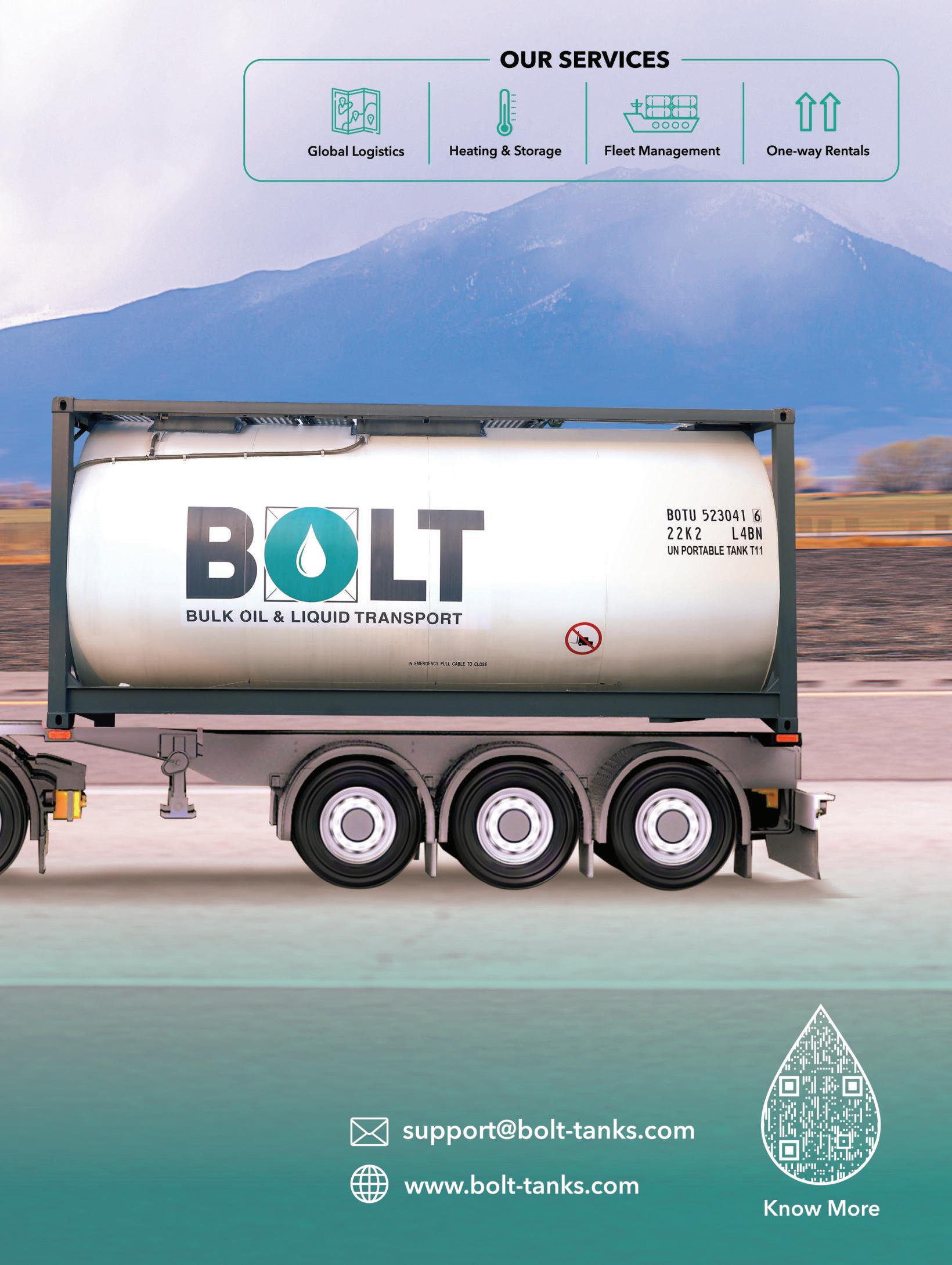


Artificialintelligence(AI)hasbecomeaforceofhealthrevolution
withunprecedentedpotentialtoenhancepatientresults, maximizetheutilizationofresources,andaccelerateclinical research.ButAIinmedicinealsoposessignificantethicalissuesthatneed tobeaddressedsoitcanbeusedappropriately
In this article, ethical concerns regarding AI use in healthcare decisionmaking are brought up, including most essential challenges of patient autonomy, privacy of data, algorithmic bias, and accountability.
AIHealthcarepossessesthemassivepotentialtotransformmedical practice.Throughscrutinizingvastamountsofpatientinformation—such aspatienthistories,imagingscans,andlabtests—AIapplicationscan discoverpatternsandtrendsthatwouldotherwisebebeyondthehuman observer'snotice.Forexample,AIcomputersarecapableofdiagnosing diseaseslikeskincanceratpreviouslyunheard-ofspeedandprecision, quickerthanothermethodsofdiagnosis.
Furthermore,AIenablespersonalizedtreatmentprotocolsthattarget individualpatientsandthusincreasethequalityofcarewhileloweringthe incidenceofmedicalerrors.Therearesuchgainsdespitethem,ethical integrationofAIintohealthshouldbeproceededwithcautiouslyto eschewuntowardeffects.TherevolutionpotentialofAImustbeweighed againstethicstoensurepatientinterestsdonotfalltotheperipheryin decision-makingabouthealthcare.
AmongtheseriousethicalchallengesofAIuseinhealthcareisthatit couldaffecttheautonomyofpatients.Autonomyisamongthe fundamentalprinciplesofhealthcareethicsthatentitlespatientstobe consultedtomakeintelligentdecisionsontheirtreatment.Nevertheless, theinvolvementofAIsystemsindecision-makingcanerodethisprinciple silentlyunlesspatientsareproperlyeducatedregardingtheroleofAIin theirtreatmentplan.





Healthcarepractitionersneedtoplaceahighlevelof importanceontransparencyandexplaintopatientshowAI willbeusedintheirtreatment.Patientsneedtorealizethat AIisveryinformativebutthatitisamachineandatoolfor enhancinghumandecision-making,notreplacingit. Informedconsentneedstobeprovided;patientsneedtobe abletochoosenottoparticipateinAIdecision-makingif theyarenotokaywithitsimplementation.
SuccesswithhealthcareandAIisverymuchreliantonthe availabilityofenormousamountsofdatathatholdsensitive patientinformation.Dependenceondataiswheretheroot causeofextremeprivacyandsecurityissueslies.Useor accessofpatientdatabyunauthorizedpartieshasthe potentialtocauseconfidentialityviolationsthataffecttrust. Thereisalsotheaddedriskofusingdatagatheredto developAIforpurposesotherthanpatientcare,like commercialization.
Toremedysuchissues,thereisarequirementofhealthcare organizationshavingefficientcontrolsthatguardpatient information.Observanceofdataprotectionlawisnecessary toensureethicalhandlingofdatameasuresareassured. Further,priorconsentobtainedfrompatientsspecifically beforetheirdataisretrievedisvitalinprotectingtrustand maintainingmeasuresofethics.
AnotherprimaryethicalissuewithAIinhealthcareis algorithmicbias.Biascanoccurwhentrainingdataisnot broadenoughtocapturemanydiversegroups,suchthat resultsarenotequitableacrosssomegroups.Forinstance, analgorithmthathasbeentrainedpredominantlyonone group'sdatamightnotdiagnoseorrecommendwellfor others.
Tocombatbias,developersneedtoensurethattraining datasetsforAIsystemsarewide-rangingandreflectiveof allpopulationsegments.On-goingauditingandassessment areneededtodetectandeliminatebiasesfromalgorithms. EquityandjusticeshouldbeupheldwithfairnessinAIdrivenhealthcaredecision-making.
AccountabilityandTransparency
Accountabilityisthecornerstoneofethicalapplicationof AIinhealthcare.
IfanAIsystemcommitsanerrorsuchasmisdiagnosisor recommendation,thequestioniswhoshouldbeheld accountable—thedeveloper,themedicalpractitioner,orthe organizationthatimplementsthetechnology.Linesof accountabilityneedtobeclearlyestablishedtosolvesuch dilemmas.
Transparencyisalsocentraltoestablishingtrustamong stakeholders.Healthcareprofessionalshavetorevealhow AIsystemsmakedecisionsandmakepatientsawareofthe limitationsofsuchsystems.Openpracticesnotonlybuild trustbutalsoallowstakeholderstospotpotentialerrorsor biasesinAIsystems.
ThepartthatAIplaysinhealthcareisabeautiful combinationofinnovationandethics.Technological advancementsthatpromisebetteroutcomesandefficiency arenottobeachievedatthecostofethicalvaluessuchas autonomy,beneficence,nonmaleficence,andjustice.The healthcareprofessionalhastotakeupaproactiverolein mitigatingethicalissuesbyteamingupwithethicists, policymakers,andtechnologists.
RegulationofthedesignanduseofAIsystemsisnecessary inordertoprotectpatientrightsandpromoteequitable accesstohigh-qualitycare.Inaddition,stimulating interprofessionalexchangeamongstakeholderscan facilitatetheconstructionofethicalcodesofconductforthe useofAIinhealthcare.
HealthcareAIholdstransformativepromisebutalso complexethicalcomplexitiesthatmustbetakenseriously Fromensuringpatientautonomyandconfidentialityof informationtominimizingalgorithmicbiasandcreating accountabilityframeworks,ethicalintegrationisrequiredin ordertoachievethistechnology'sfullpotentialinanethical manner.
Bymakingtransparency,fairness,andpatient-centered practicepriorities,stakeholderscancreatetrustandmake surethatAIisusedasaforceforgoodinhealthcare decision-making.Ultimately,ethicalAIinmedicineshould notonlystrivetoenhanceoutcomesbutalsomaintainthe integrityofmedicalpracticewhilesustaininghuman dignity.







Preventivemedicine,thevisionaryapproachtowards
keepinghealthyandavoidingdisease,is revolutionizingthehealthcareindustry Thiscure-topreventionshiftisreshapingtheoperationofhealthsystems withlong-termanswerstodealwiththediseaseburden, improvethehealthofthepopulation,andcontrolhealthcare spending.
Withgrowingchronicillnessesandagingpopulations increasinglychallenginghealthcaresystemsglobally, preventivemedicineisthefoundationtorevolutionizethe sector
Preventivemedicineisaimedatpreventingtheonsetof disease,asopposedtomanagingitonceithasarisen.Itis practicedatthreeprimarylevels:
• PrimaryPrevention:Seekstoeliminatecausesof riskandteachhealthyhabitstohindertheonsetof disease.Theseincludevaccinationcampaigns,quitsmokinginitiatives,andexerciseencouragement programs.
• SecondaryPrevention:Entailsdetectionandearly interventionthroughtheapplicationofdiagnostictests andscreeningtestsinordertostopdisease progression.

• TertiaryPrevention:Focusesonthetreatmentof chronicillness,preventionofcomplications,and improvementofthequalityoflifeofpatientswith suchdiseases.
Byfocusingontheselevels,preventivemedicinenotonly enhancesthehealthofpatientsbutalsoreducesthe economicloadonthehealthcaresystem.
Healthcareisbesetwithgiganticissuesinthewakeof risingratesofchronicdiseasessuchascancer, cardiovasculardisease,anddiabetes.Thediseasesare generallypreventablethroughlifestylechangesandearly treatment.Additionally,populationaginggloballyisfurther increasinghealthcaredemand.Nearlyoneineverysix individualsintheworldwillbeovertheageof65years duringthecomingdecadesand,hence,inneedof preventiveservicestominimizesicknessthataccompanies advancingage.
Economicfactorsalsoformthebasisofthepreventive medicinepractice.Preventioncostsmoreandisless effectivethantreatment.Largescalevaccinationschemes areacaseinpoint,havingprovencost-effectivebycutting infectiousdiseasehospitalization.Thedrugsindustryisalso respondingbycreatingpreventivemedicationandvaccines forlongtermdiseaseslikeasthmaandmigraine.
Advancesintechnologyareincreasinglymakingpreventive medicinemorepracticableinthehealthindustry
Sophisticatedtestssuchasgenetictesting,wearablehealth devices,andartificialintelligencemakepreventionplans tailoredtoindividualriskfactorspossible.Forexample:
• GeneticTesting:Signalsriskofdiseaseslikecancer orcardiovasculardisease,wheretargetedinterventions canbebegun.
• WearableDevices:Monitorvitalsignsandactivity, encouraginghealthierlifestyles.
• ArtificialIntelligence(AI):Forecastsdisease outbreakandidentifieshigh-riskgroupsforearly intervention.
Suchtechnologiesenableprovidersandpatientsaliketo makeoptimaluseofpreventiveinterventions.
Preventivemedicinehasgreatimpactsonpublichealth. Throughattentiontothepreventionofdiseaseinitsearly stagesandeducation,itreducestheincidenceofavoidable diseasewithinpopulations.Informationcampaignsabout diet,exercise,andsmokinghaveallkeyrolestoplayin buildinghealthiercommunities.Precautionsalsoactonthe environmentalfactorsaffectingoutcomesforhealth, includingwaterandairquality.
Thehealthindustryisoneofthebiggestwinnersfromthese improvementsinpublichealth.Reducedratesofdisease translatetoreducedhospitalneedsanddrug,freeingup moneyforotherareasofessentialexpenditurelikeresearch oremergencycare.
However,bringingpreventivemedicineintothehealth industryisnotwithoutchallenge:
• FundingBarriers:Preventiveinterventionsare expensiveupfrontbutcostlessmoneyinthelong term—afacttooeasilyforgottenbypolicymakers.
• BehavioralBarriers:Encouraginghealthierliving fromindividualsmightbedifficultduetocultural beliefsorresistance.
• AccessDisparities:Disparitiesinaccesstopreventive carebetweenruralandurbansettingsoramong varyingsocioeconomicgroups.
Theanswertotheseproblemsmustbefoundby collaborationbetweengovernments,healthworkers,andthe privatesector
Shifttopreventivecarecreatesopportunitiesfor transformationtothehealthsector:

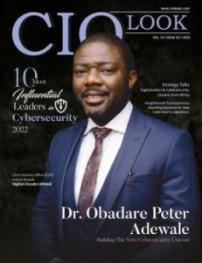
• CostSavings:Preventionofdiseaseprevents treatmentcostsinthefuture.
• BetterOutcomes:Preventionthroughearlydetection ofdiseaseenhancessurvivalinthecaseofcanceror heartdisease.
• Sustainability:Preventionpreventsthewastageof facilitiesandresourcesathospitalsandclinics.

Besides,pharmaceuticalcompaniesarealsoworkingon newpossibilitiessuchasvaccinesforchronicdiseases—a breakthroughthatwouldredefinetheroleofpreventivecare inhealthcareprovision.
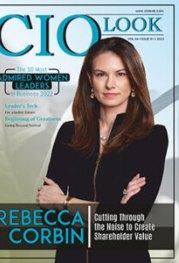

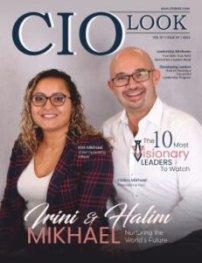


Preventivemedicineistransformingthehealthcare industrybygivingmoreimportancetopreventionthan cure.Itsfocusondiseasepreventionnotonlypromotesthe healthandwell-beingofindividualsbutalsostrengthens publichealthinfrastructureglobally Withchanging technologyandinformation,preventivecarewillbeoneof theprimarydriversinprovidinghealthcareinthefuture. Nevertheless,surmountingthecostbarrierandproviding accessonanequalbasisarearequirementtoallowitto reachitsfullpotential.
Byembracingpreventivemedicineontheindividual, community,andsystemlevels,thehealthindustrycan achievesustainabledevelopmentandenhancethequalityof lifeformillionsworldwide.

